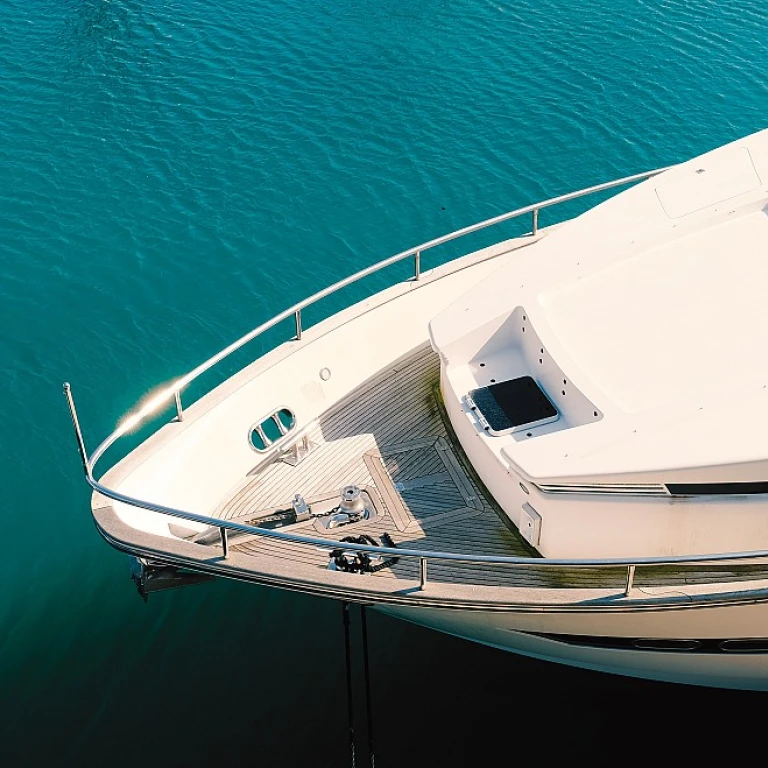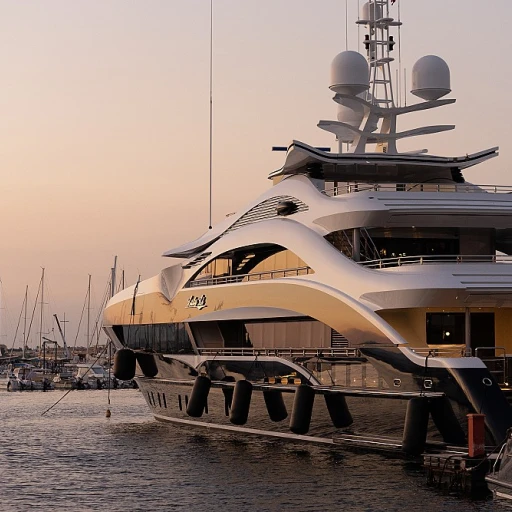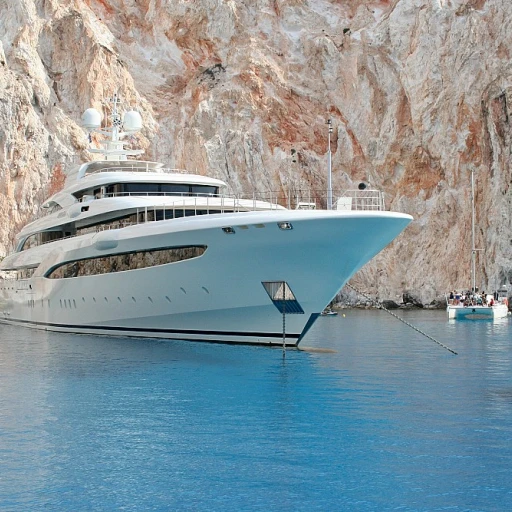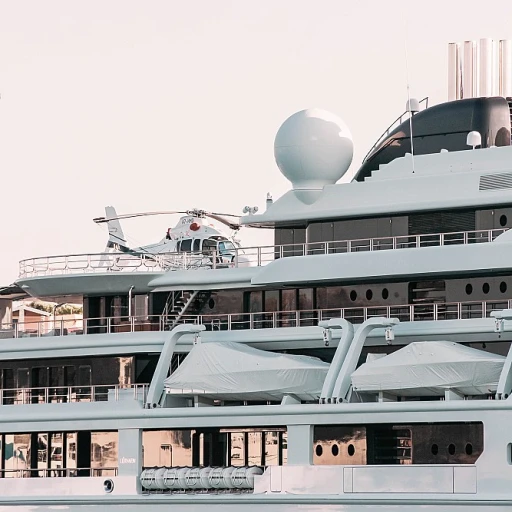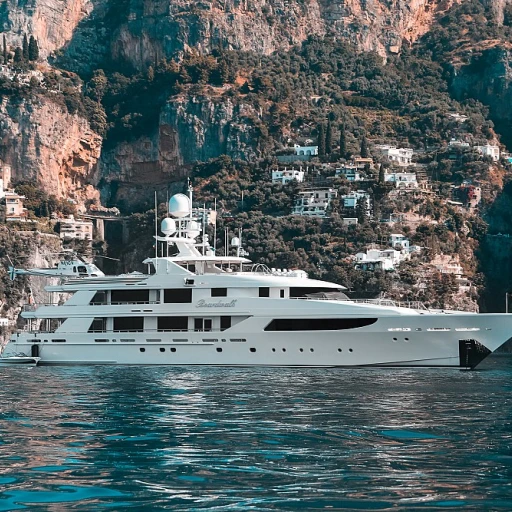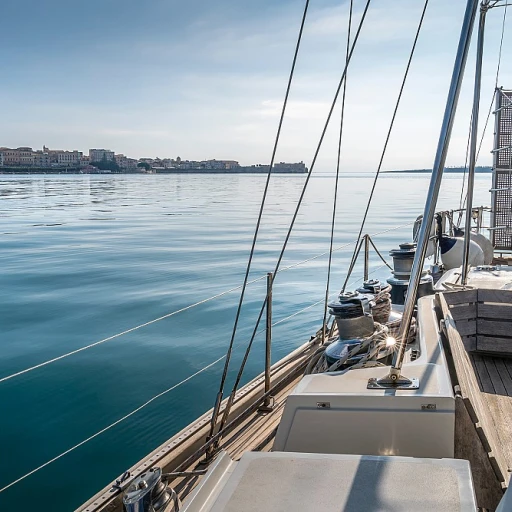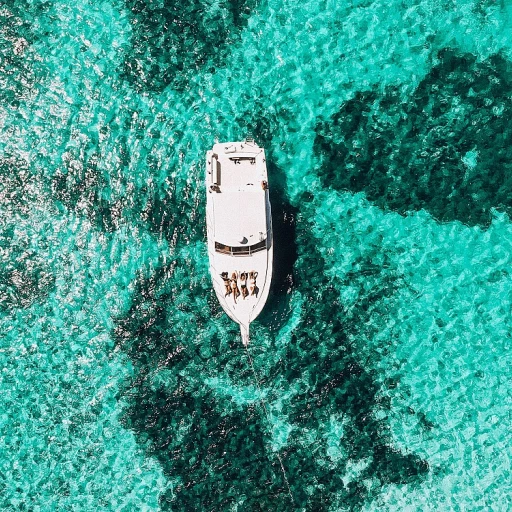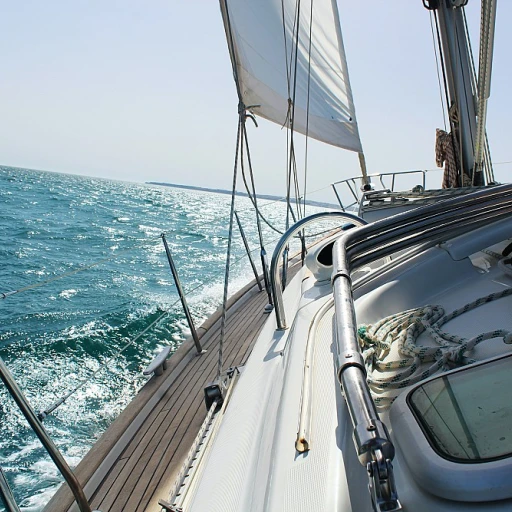
Why Choose Aluminum for Water Tanks?
Aluminum's Appeal in Water Storage for Yachts
The choice of material for water tanks in yachting is critical for the performance and longevity of a yacht's water system. Aluminum water tanks have emerged as a popular option for several reasons. They strike an excellent balance between strength and weight, crucial factors when considering the overall efficiency of the vessel. Many yacht enthusiasts might wonder why aluminum is favored over other materials like plastic or stainless steel. The answer largely lies in its inherent qualities that cater to maritime needs beautifully. With a favorable price point and superior properties, aluminum water tanks have become a go-to choice for maximizing boat performance and comfort. Aluminum stands out due to its excellent corrosion resistance. While rivals such as steel may succumb to rust if not properly maintained, aluminum naturally forms a protective aluminum oxide layer, mitigating the impact of corrosive elements typically found in marine environments. This ensures that the water, especially drinking water, remains uncontaminated and fresh, a top priority for all yacht owners. Beyond material benefits, the installation of a gallon aluminum water tank is a wise investment for those who calculate the weight and capacity balance necessary for optimal yacht operation. With regular use, a well-constructed aluminum tank maintains its integrity, ensuring a consistent supply of fresh water, without the hassles associated with the upkeep of a plastic tank. Moreover, aluminum tanks offer greater flexibility in terms of design and capacity, allowing them to fit seamlessly into the unique space confines of each yacht. This adaptability means they can complement any location preference, whether installed below deck or within specific access ports. Finally, for those considering the best solutions for comprehensive yacht outfitting, understanding the advantages of an aluminum water tank can go hand-in-hand with other essential yacht equipment. For comprehensive advice on selecting the right components for your boat, such as finding the ideal engine, is paramount to enhancing the overall yachting experience.Durability and Longevity
Strength and Resilience of Aluminum
When considering materials for your water tanks, the durability of aluminum stands out. Due to its naturally occurring protective layer, aluminum is highly resistant to corrosion, a critical factor for marine environments where exposure to salt and moisture is inevitable. Compared to plastic and stainless steel, aluminum's ability to form aluminum oxide on its surface acts as a shield against corrosive elements, offering an extended lifespan for your water tanks.
Lightweight Yet Sturdy
The structure of aluminum provides a unique balance of strength and weight. This characteristic is particularly advantageous for yacht owners, as a lightweight material eases the load on the vessel without compromising the tank's durability. Despite being lighter than steel or plastic tanks, aluminum water tanks are robust, contributing to efficient use of space and energy consumption on board.
Flexibility in Design
Another advantage of aluminum is its versatility in design, making it a top choice for custom installations. This adaptability allows tanks to be fitted into various locations within the boat, catering to unique spatial requirements. Customization doesn't mean a spike in price; rather, it provides yacht owners the luxury of optimizing space without excessive costs. Plus, with the capability to accommodate varying gallon capacities from holding tanks to drinking water systems, aluminum's malleability is unrivaled.
Proven Performance
Many yachtsmen have shared their positive experiences with aluminum water tanks across various user posts and professional reviews, assisting others in decision-making. The proven performance of aluminum in harsh marine environments continues to validate its high regard in the yachting community. To understand how the placement and function of these tanks contribute to a yacht’s alignment, consider exploring the importance of outboard motor shaft length.
Maintenance and Care
Ensuring Proper Tank Maintenance
Maintaining aluminum water tanks on your boat doesn't have to be a daunting task, especially when equipped with the right knowledge and practices. The natural formation of aluminum oxide on the tank’s surface provides a protective layer against corrosion, prolonging its life. Regular checks on your aluminum tank can ensure that this protective oxide layer remains intact and effective.
One of the key aspects of maintenance is the proper cleaning of the inside tanks. It’s essential to use non-corrosive cleaning agents to maintain the integrity of the aluminum surface without compromising its durability. For those with access ports, routine inspections are simpler, as it allows users to visually check for any signs of wear or possible leaks.
It is crucial to regularly monitor and clean the water system, especially the pumps and associated components. This ensures that drinking water and fresh water are not only safe for consumption but also remain free from contaminants that could harm the tank over time. Unlike plastic or stainless steel tanks, aluminium tanks don’t readily harbor bacteria, but sediment buildup in the access ports or at the tank bottom needs attention.
Bear in mind environmental factors such as city water supply quality can affect your aluminum tank’s performance. It's advisable to install a pre-filter system to mitigate any potential negative impact from fluctuating water quality when filling the tank, which also eases the burden on the water tanks' pumps.
Ultimately, proper maintenance ensures your water tank system remains efficient, cost-effective, and reliable over time, maintaining its value and performance much like your choice between a plastic tank or a steel tank for different purposes like holding tanks.
Environmental Impact
Eco-Friendly Considerations of Aluminum Water Tanks
Aluminum water tanks provide a more environmentally sustainable option compared to other materials like plastic or steel when it comes to storing water on yachts. Their eco-friendliness is largely attributed to several key factors. Firstly, aluminum is a light-weight yet strong material, which means tanks made from aluminum help in reducing the overall weight of a boat. This reduction contributes to improved fuel efficiency and a decrease in greenhouse gases emitted during sailing or cruising. Reduced weight also means less strain on the boat's water system and pumps. Moreover, aluminum is highly recyclable. At the end of a tank's useful life, aluminum can be recycled entirely without degrading its properties. This is a significant advantage over plastic tanks, which are less likely to be recycled due to contamination concerns and the degradation of plastic polymers. Additionally, aluminum tanks pose fewer risks of leaching harmful chemicals into the water they store. Some users of plastic tanks have reported undesirable taste or odors in their fresh water supply, often attributed to chemicals leaching from the plastic. In contrast, aluminum forms a protective layer of aluminum oxide when exposed to air, which prevents further corrosion and adverse chemical reactions, ensuring drinking water remains uncontaminated. In practical applications, whether operating with city water or holding tanks, yacht owners and maintenance teams favor aluminum tanks due to their reliability and lower long-term environmental impact. Regular maintenance of these tanks is generally more straightforward and less frequent, aligning with eco-friendly practices by minimizing resource use and waste. All these factors contribute to the growing favorability of aluminum water tanks in the yachting industry, providing an intersection of durability and environmental responsibility.Cost Considerations
Investment and Financial Considerations
Aluminum water tanks can initially appear more expensive than traditional plastic or stainless steel tanks. However, the true value lies in the long-term financial benefits that aluminum provides.- Cost Over Time: While aluminum tanks might have a higher upfront price, their longevity and durability reduce the need for frequent replacements. In the long run, this can translate to savings as they are less prone to corrosion and damage compared to regular steel or plastic alternatives.
- Maintenance Savings: Aluminum's resistance to corrosion translates to lower maintenance expenses. Unlike steel tanks that may require regular anti-corrosion treatments, aluminum tanks minimize these recurrent costs. Moreover, ease of maintenance and access to various parts inside tanks, like access ports, further decreases maintenance efforts and costs.
- Resale Value: Yachts with installed aluminum tanks can potentially see an increase in overall value. Buyers often appreciate the assurance of a durable and low-maintenance water system, making aluminum a wise choice for those considering the resale of their boat in the future.
- Bulk Purchase Options: For larger boats requiring more substantial water storage solutions, purchasing gallon aluminum tanks in bulk can often lead to reduced prices. Vendors might offer better per-gallon prices when buying multiple tanks, providing a cost-effective option for large yachts destined for sale or commercial use.
Case Studies and Real-World Applications
Practical Applications and Insights from the Field
In the face of challenging marine environments, the benefits of aluminum water tanks come to life through real-world applications. Various types of boats, from luxury yachts to practical fishing vessels, have incorporated aluminum tanks to harness their unique advantages.
For instance, in the case of long-range cruiser yachts, the choice of aluminum water tanks has been favored due to their balance of weight and durability. The longevity of these tanks is unparalleled, especially compared to regular plastic or steel alternatives. A notable user post in a yachting forum highlighted an installed gallon aluminum tank surpassing two decades of reliable service, with minimal corrosion or maintenance issues.
In more remote locations, the durability of aluminum against corrosion and wear makes it a suitable choice for tanks intended to store both fresh and city water. Therefore, yachts sailing in regions with harsher water conditions often benefit from aluminum’s resilience over stainless or plastic tank options.
Several charter companies have adopted these aluminum tanks, recognizing the decreased long-term costs and improved safety for drinking water systems on board. This decision often considers the overall price of maintenance and potential savings from less frequent replacements. By opting for aluminum, charter operators report fewer incidents of leakage and damage, which directly reduces downtime and enhances customer satisfaction.
Contemporary boat builders also embrace the eco-friendly aspects of aluminum, minimizing the environmental impact during production and after the tank's lifecycle. Unlike stainless or plastic alternatives, aluminum's lower degradation rate and recyclability promote sustainable marine practices.
Conclusively, whether it's an installed gallon tank or a custom-fabricated water system, the versatility and efficacy of aluminum continue to drive its popularity in both existing fleets and new constructions. The corrosion resistance, reduced upkeep, and strategic cost benefits manifest through tangible, consistent performance across various maritime platforms.

